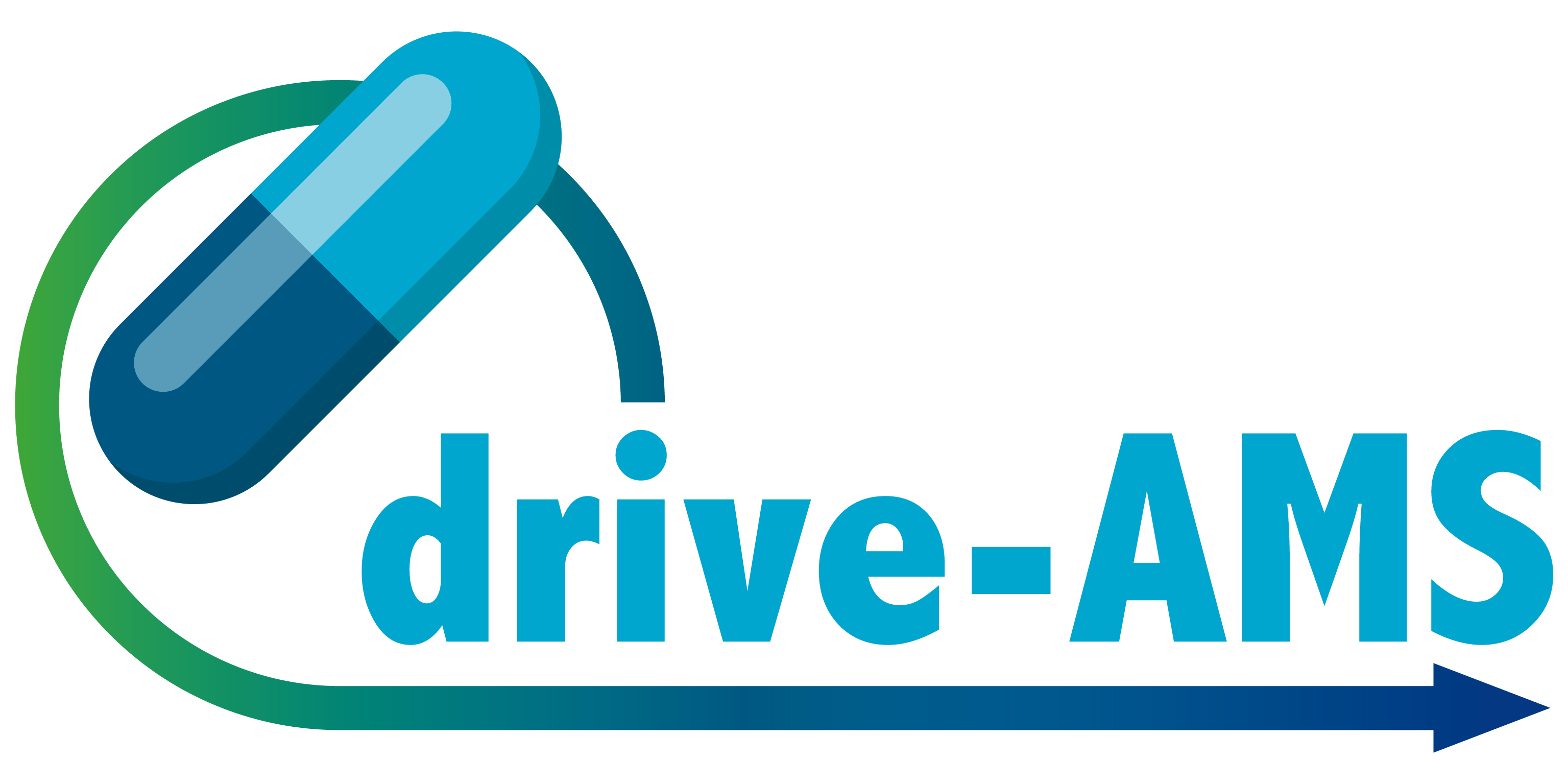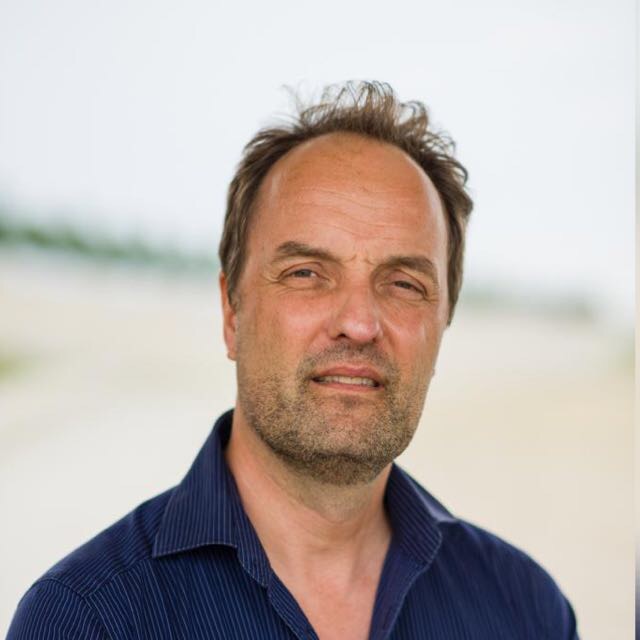In a nutshell, what is drive-AMS and why is it important?
We all know that antibiotic resistance threatens our health worldwide. Therefore, we must be more careful about the use of antibiotics. The fact is that doctors prescribe antibiotics too quickly, often with a wrong dose and/or duration. But to really bring about lasting change, you need not only target the doctors, but also the policy makers of healthcare institutions and governments.
With this EU4Health Programme, we aim to successfully implement antimicrobial stewardship (AMS) programmes in healthcare facilities. The programme has two important pillars: behavioural change and measurement. With our programme participants first measure their antibiotic use with Global-PPS, after which inappropriate prescribing is identified and changed through implementing behavioural science methodologies. This leads to better prescribing practices and eventually to less resistance development. During the implementation period we optionally provide support by AMR experts.
Our end goal is to build expertise and sustainably develop and integrate our philosophy in AMS programmes in hospitals throughout Europe.
What has been achieved in the first 8 months of the project?
In the first phase of the project, we recruited AMR key opinion leaders in the four European partner countries Greece, Lithuania, Portugal and Romania. The aim was to convince them to be part of the programme, implement the gained knowledge from the masterclass course into their own AMS programmes and eventually into their national AMR action plans. After fruitful discussions with the country leads in the beginning of 2023, we organised a Training-of-Trainers course in Nijmegen, the Netherlands. It was an opportunity for everyone to meet, get acquainted and, of course, learn about the core aspects of the programme.
The current, second phase consists of the country leads running AMS programmes in their own communities as well as preparing to organise their own course on AMS. For this course, faculty members from the core institutions Radboudumc and the University of Antwerp will support the four partners. Each partner will be hosting a meeting for 40 participants from 8-10 different hospitals in their country to pass on the knowledge and educate the participants on how they can create sustainable programmes as well in their own hospitals. We hope that by doing this a sort of pyramid system is formed through which our philosophy gradually spreads and that this will motivate more and more healthcare workers to change their prescribing behaviour, become experts themselves and organise their own AMS programmes. It is great to notice during our regular webinars that everyone is on track and enthusiastic about implementing their own projects and subsequently passing on knowledge to colleagues in their country.
What did you find challenging? What surprised you?
It was interesting to see the different routes the partners took in implementing the course in their countries. Portugal, for example, aligned the approach of the AMS projects in the different hospitals to achieve the same kind of change across the country. While our Greek colleagues focused first on tackling behavioural change within paediatric care so predominantly working with paediatric hospitals.
It’s important to recognise that the existing stewardship programmes in the different countries are at different levels of experience. For some countries, the effort is much bigger because the hospitals receive hardly any funds for AMS. One of our major challenges is the lack of behavioural scientists in our programme. Most participants are physicians, microbiologists or pharmacists but they don’t have experience with behavioural science and often don’t have the expertise on how to change prescribing behaviour. In most cases, experts in this field are psychologists, sociologists or anthropologists with an interest in changing behaviour. So, we are now trying to include more of those experts in the course programme.
Another challenge is building our SPICE registry, which is a registry of AMR experts who not only want to implement the course in their own health institutions but also advise other institutions Europe-wide on how to improve their antibiotic use. We are still in the early stage of adopting implementation science and measurement in one central system and our participants are not yet confident to register as experts. This will take some time.
Can you share any lessons learned already?
A first lesson we have already learned is that implementation requires time. Initially, we had foreseen that it would take around six to nine months to implement the courses in the partner countries. However, in reality it takes much longer, especially if the knowledge and capacity to perform stewardship prior to participating in the programme were limited. The participants need to have the time to get acquainted with the philosophy, use it, measure their antibiotic use and improve it. Therefore, we need to be realistic and take this into consideration for the remainder of our drive-AMS project.
Another lesson is that the participants learn the most when talking to each other and sharing experiences. This valuable exchange gives them the opportunity to share how they’re adapting and implementing the philosophy in their communities. When you only talk to health care professionals from your own country, you get confronted with the same problems and same approach. Only by discussing these issues with peers outside of your country, can you get new ideas on how to solve them, or see new opportunities. What is interesting to note is that you often learn the most from countries with very few funds because they have found simple yet effective ways to improve their antibiotic use. So, one of the most important takeaways that we have learned so far is that we should organise international courses with healthcare professionals from different countries at different levels of AMS to gain the most insights.
What are your expectations for the future of drive-AMS?
First and foremost, we want to execute this project properly and learn from it. It will be interesting to see if we manage to motivate enough healthcare professionals in the four countries to participate in the programme as well. I would like to add that the collaboration with the country leads has been excellent up to this moment and we hope to build and spread – with them – this unique approach to antimicrobial stewardship in future projects throughout Europe.
About Dr. Jeroen Schouten
 Dr Jeroen Schouten is internist and intensivist and a senior researcher at Radboudumc in Nijmegen, the Netherlands. Jeroen earned a PhD in Infectious Diseases and Implementation Science and has been involved in qualitative research with a focus on antimicrobial stewardship ever since. As senior researcher, he has performed numerous studies on understanding and improving hospital antimicrobial use. Jeroen is experienced in qualitative and quantitative research methods and has been involved in many (inter)national initiatives to improve antibiotic prescribing (e.g. ESCMID, ECDC, ISAC, WHO). He heads the Radboudumc Antimicrobial Stewardship Program (ASP) and is course director of the Dutch Masterclass for Antimicrobial Stewardship and Expert consultancy, an International program that focuses on the step wise implementation of AMS activities in healthcare institutions (www.dutchAMS.com).
Dr Jeroen Schouten is internist and intensivist and a senior researcher at Radboudumc in Nijmegen, the Netherlands. Jeroen earned a PhD in Infectious Diseases and Implementation Science and has been involved in qualitative research with a focus on antimicrobial stewardship ever since. As senior researcher, he has performed numerous studies on understanding and improving hospital antimicrobial use. Jeroen is experienced in qualitative and quantitative research methods and has been involved in many (inter)national initiatives to improve antibiotic prescribing (e.g. ESCMID, ECDC, ISAC, WHO). He heads the Radboudumc Antimicrobial Stewardship Program (ASP) and is course director of the Dutch Masterclass for Antimicrobial Stewardship and Expert consultancy, an International program that focuses on the step wise implementation of AMS activities in healthcare institutions (www.dutchAMS.com).
Jeroen is currently chair at ESGAP (ESCMID Study Group of Antimicrobial Stewardship) and coordinates the ESCMID Certificate European Training Program for Antimicrobial Stewardship. He is also member of the Executive Committee at APUA.

